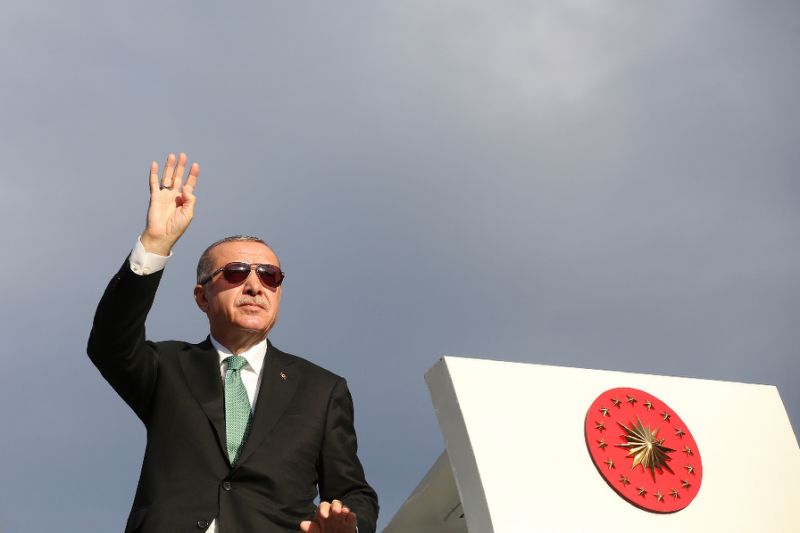
Turkey hiked Wednesday tariffs on imports of several key US products in retaliation for American sanctions against Ankara, as a bitter dispute between the two allies that has battered the Turkish lira showed no sign of ending.
The lira — which lost just under a quarter of its value in trading on Friday and Monday — however continued to claw back some ground on financial markets, rallying around five percent against the dollar.
But a court rejected an appeal for the release of American pastor Andrew Brunson — whose detention for almost two years sparked the crisis — leaving no immediate solution to the Turkey-US row in sight.
The lira’s fall had raised fears Turkey was on the verge of a fully-fledged economic crisis, especially in its banking system, that could spill over into Europe and other markets.
Turkish Vice President Fuat Oktay said that the tariff hikes were ordered “within the framework of reciprocity in retaliation for the conscious attacks on our economy by the US administration”.
President Donald Trump had previously announced that the United States was doubling steel and aluminium tariffs on Turkey.
The hikes were published in Turkey’s Official Gazette in a decree signed by President Recep Tayyip Erdogan, who has repeatedly described the crisis as an “economic war” that Turkey will win. The tariff increases amount to a doubling of the existing rate, the state-run Anadolu news agency said, in an apparent parallel response to Trump’s move.
The decree said the move brought tariffs to 50 percent on imports of US rice, 140 percent on hard alcoholic drinks like spirits, 60 percent on leaf tobacco and 60 percent on cosmetics.
Trade Minister Ruhsar Pekcan said Turkey had doubled tariffs on 22 products imported from the United States, saying the tariffs were together worth an additional $533 million.
Erdogan’s spokesman Ibrahim Kalin added: “Turkey is not in favour of an economic war with anyone but when attacked … will take all necessary steps.”
Erdogan on Tuesday said Turkey would boycott US electronic goods like iPhones, even though he has himself been photographed repeatedly using the product himself. He also made his now famous speech on the night of the July 2016 failed coup calling citizens out into the street through FaceTime, an iPhone app.




